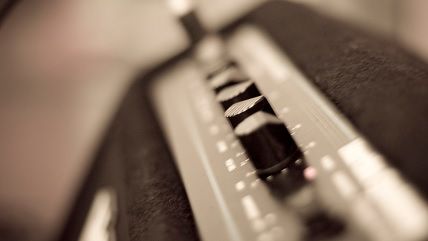The Parties Turn It Up to 11
Republicans are moving rightward while Democrats are moving leftward.

"Look, I imagine that there's theoretically a chance that [we] all went from being radical extremist crazies to Washington sellouts in 12 hours," South Carolina Republican Rep. Mick Mulvaney said the other day. "But maybe a more likely narrative is that we really think that this is a good step for the conservative movement."
Mulvaney is a leader of the Freedom Caucus, the ragtag rump of right-wingers in the House of Representatives who helped show House Speaker John Boehner the door. He was beefing about the fact that conservative activists have turned against caucus members who support Rep. Paul Ryan for Speaker. Ryan is about as conservative as they come. But there is always someone who, like Spinal Tap's Nigel Tufnell, is willing to turn the dial up to 11, which means anyone who stops at 10 becomes a RINO, at least relatively speaking.
You'd have to be living under a rock to have missed the drama that has engulfed the GOP since the rise of the Tea Party a few years ago. The fallout has been relentlessly entertaining, and sometimes dismaying. But the cacophony also has obscured a similar dynamic on the other side of the aisle. While the GOP's center of gravity has been moving right, the Democratic Party's center of gravity has been moving left.
You can see that in the difference between two Wall Street Journal/NBC News polls, taken in 1990 and again this year. The polls show a clear rightward shift among Republicans: The percentage calling themselves "very conservative" or "somewhat conservative" has grown from 48 percent to 61 percent, a shift of 13 percentage points. At the same time, though, the percentage of Democrats who call themselves "very liberal" or "somewhat liberal" has grown from 39 percent to 55 percent, a shift of 16 percentage points. If the poll is accurate, then Democrats have moved to the left by a slightly greater degree than Republicans have moved to the right.
This summer Gallup reported similar results when it found "Democratic candidates for the 2016 presidential nomination face a significantly more left-leaning party base than their predecessors did over the last 15 years." Last year Pew Research found the same thing over a 25-year time frame, observing that "members of both parties have become more ideologically consistent and, as a result, further from one another."
So it's no surprise that, while Hillary Clinton remains the prohibitive favorite to win the Democratic presidential nomination, the heart of the party proletariat beats for democratic socialist Bernie Sanders.
This is telling, because for Sanders and his supporters even the more left-wing Democratic Party of today is still not nearly left-wing enough. Sanders favors tax rates as high as 90 percent; he thinks lowering foreign tariffs through the Trans-Pacific Partnership trade deal would be "disastrous"; he even opposes an open immigration system, arguing that it's a right-wing plot. His economic ideas are not merely steeped in the past, they are steeped in ignorance of basic economics: It makes "no sense," he tweeted, that college loans bear higher interest rates than car loans or mortgages. But it makes perfect sense. As a Twitter response succinctly put it, doesn't Sanders understand the "difference between secured & unsecured loans? Try repossessing a college degree."
Sanders also wants to rewrite the First Amendment so government can prohibit private groups from airing advertisements, making movies, publishing books, or otherwise commenting about political candidates. In this, unfortunately, he has a lot of company. Hillary Clinton has proposed the same thing. So has the other remaining Democratic contender, Martin O'Malley. Carving out exceptions to the First Amendment is now, as one commentator on NPR remarked, "a mainstream position," at least in Democratic circles.
The conventional wisdom says the increasingly ideological strain in both parties is bad for America because it makes politics "dysfunctional" and governing "impossible" and because "a polarized political system makes it impossible for the federal government to accomplish most of its policy objectives" and so on.
The unspoken premise behind such laments is that things were ever so much better when the two parties were of one mind on most of the big questions facing the country, and a handful of big shots could hash out any remaining differences over a chummy round of drinks.
But there is at least as much evidence against such a premise, $18 trillion of government debt, the Iraq war's fallout, continuing economic malaise, as there is for it. Which makes it easier to understand why, rightly or wrongly, many party activists on both sides want to turn the dial up to 11.
This article originally appeared at the Richmond Times-Dispatch.


Show Comments (43)